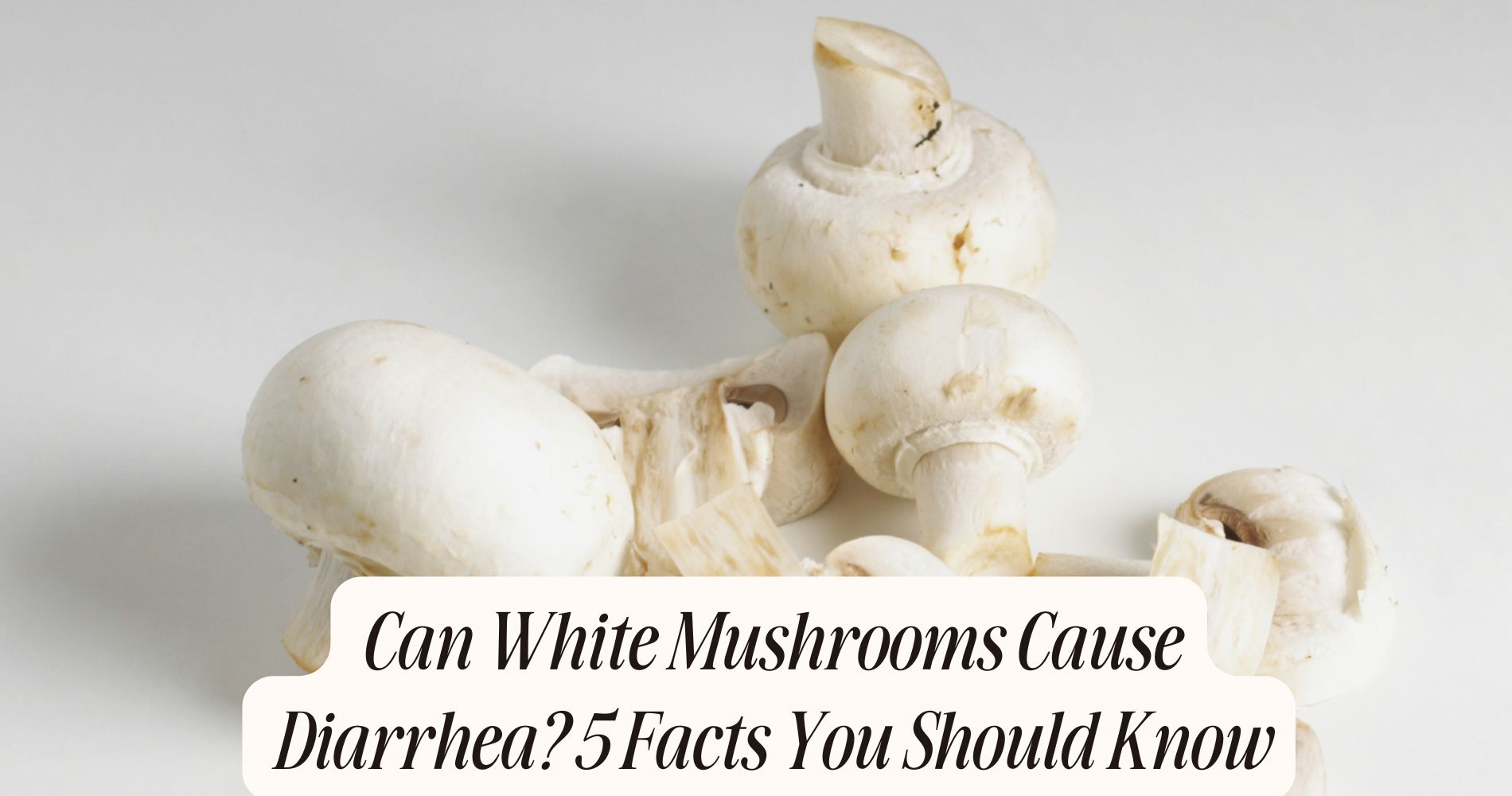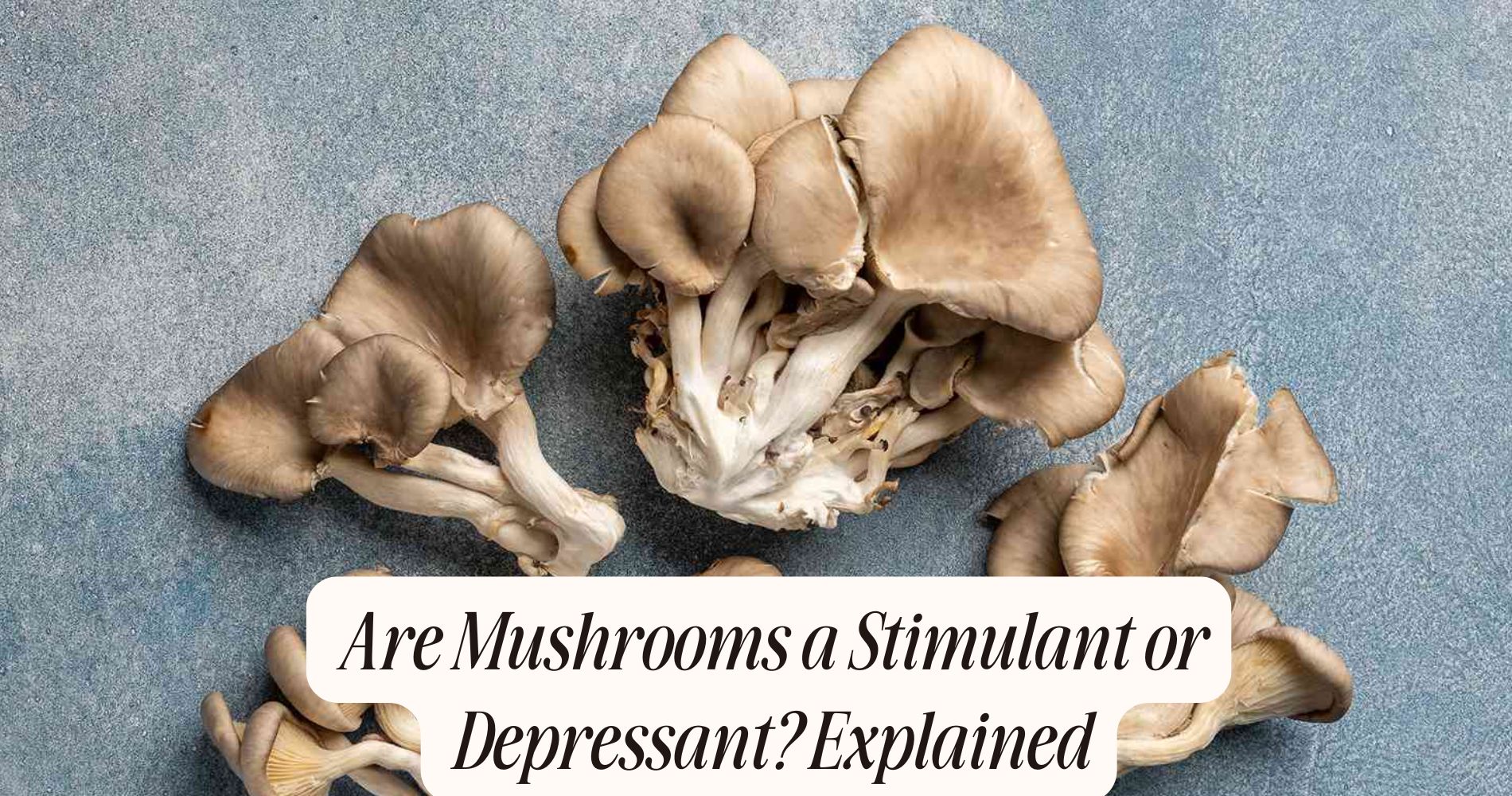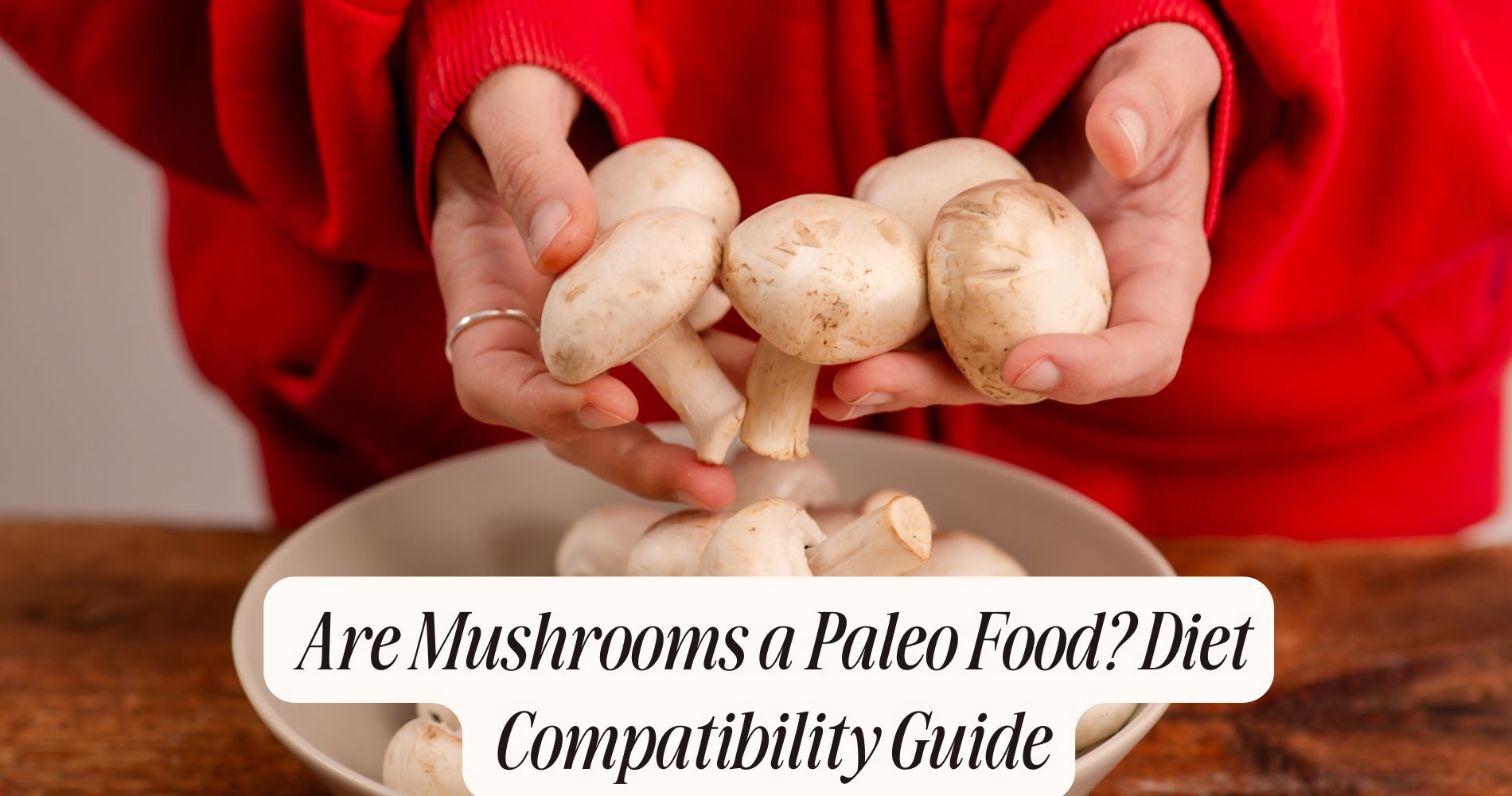
Can White Mushrooms Cause Diarrhea? 5 Facts You Should Know
Can white mushrooms cause diarrhea? White mushrooms can cause diarrhea, especially if you have allergies or food intolerances. Some people experience bloating and gas after consuming them. To avoid digestive issues, start with small portions—half a cup is a good guideline. Also, how you prepare them matters; cooking can make them easier to digest, while eating them raw might worsen sensitivity. Since individual tolerance varies, it's best to keep track of your reactions. Understanding these factors can help you enjoy mushrooms safely. If you're curious about more specific details, there's plenty to discover on how to enjoy white mushrooms without the digestive distress.
Nutritional Profile of White Mushrooms
White mushrooms, often found in salads and pasta dishes, pack a powerful nutritional punch. These little fungi are low in calories while being rich in essential nutrients, making them an excellent choice for anyone looking to enhance their diet.
You'll find that a cup of sliced white mushrooms contains about 15 calories, along with vitamins like B2 (riboflavin), B3 (niacin), and B5 (pantothenic acid).
Incorporating white mushrooms into your meals not only adds flavor but also provides significant health benefits. They're a great source of antioxidants, which help combat oxidative stress in your body.

Plus, white mushrooms contain minerals like selenium and potassium, which support immune function and help maintain healthy blood pressure levels.
Their culinary uses are diverse; you can sauté them, roast them, or toss them in stir-fries. They blend well with a variety of ingredients, making them a versatile addition to countless recipes.
Potential Allergies and Intolerances
When enjoying white mushrooms, it's important to be aware of potential allergies and intolerances that some individuals may experience. While many people can savor these tasty fungi without issues, a small percentage might face mushroom allergies. Symptoms can range from mild hives to severe reactions like anaphylaxis. If you've ever had a reaction after eating mushrooms, it's essential to consult a healthcare professional for proper testing and guidance.
Food intolerances are another concern. Unlike allergies, food intolerances typically cause digestive issues rather than immune responses. If you notice bloating, gas, or diarrhea after consuming white mushrooms, you might be dealing with a food intolerance. Keeping a food diary can help you track your symptoms and identify any patterns.
If you suspect you have a mushroom allergy or intolerance, it's wise to avoid white mushrooms and seek alternatives that suit your dietary needs. Always read labels carefully, as mushrooms can sometimes be hidden in processed foods.
Ultimately, knowing your body and its reactions will help you make informed choices about including white mushrooms in your diet.
Cooking Methods and Digestibility
If you're steering through allergies or intolerances, understanding how cooking methods affect white mushrooms can enhance both flavor and digestibility. The way you prepare these mushrooms can greatly change their impact on your digestive system.
Sautéing benefits include retaining more nutrients and enhancing flavors. When you sauté white mushrooms in a bit of oil or butter, you create a delicious caramelization that can make them easier to digest. The heat helps break down some of the tougher fibers, which can be particularly beneficial for those with sensitive stomachs.

On the other hand, boiling has its own effects. While it can soften mushrooms, boiling often leaches out valuable nutrients and flavors into the water.
If you choose to boil, consider using the water in soups or sauces to avoid wasting those nutrients.
Portion Size and Gastrointestinal Effects
Understanding portion size is essential for enjoying white mushrooms without any gastrointestinal discomfort. If you're prone to gastrointestinal sensitivity, it's important to be mindful of how many mushrooms you consume in one sitting. While white mushrooms are generally safe and nutritious, consuming them in excessive amounts can lead to digestive issues, including diarrhea.
Start by enjoying a moderate portion size, especially if you're new to eating these mushrooms. A serving of about half a cup is a good starting point. Pay attention to how your body reacts, as individual tolerance levels can vary. If you find that larger portions lead to discomfort, it may be best to stick to smaller servings.
Additionally, cooking your mushrooms properly can help reduce the risk of gastrointestinal upset. Eating raw mushrooms or not cooking them thoroughly may exacerbate sensitivity and lead to digestive problems.
Comparison With Other Mushrooms
Considering portion size is important, but it's also helpful to know how white mushrooms stack up against other types. When you compare white mushrooms to shiitake mushrooms, for instance, you'll notice some differences in flavor and texture.
White mushrooms have a mild taste, making them versatile for various dishes, while shiitake mushrooms offer a richer, more robust flavor that can enhance certain recipes.
In terms of gastrointestinal effects, both types are relatively low in calories and high in fiber, but shiitake can sometimes cause digestive upset in sensitive individuals due to their higher concentration of certain compounds.

In a button mushrooms comparison, you'll find that both white and button mushrooms are fundamentally the same, with button mushrooms being a young form of white mushrooms.
When it comes to health benefits, all three varieties are packed with nutrients. However, shiitake mushrooms have additional compounds like lentinans that may boost your immune system.
Gentle Mushroom Nutrition with SUPER MUSHROOM GUMMIES
If you’re concerned about "Can white mushrooms cause diarrhea?" but still want to enjoy the health benefits of mushrooms, Well Gummies' SUPER MUSHROOM GUMMIES are a gentle and effective alternative. Each vegan gummy contains 10 functional mushroom types, providing immune support, mental clarity, and balanced energy—all in an easy-to-digest form. With a delicious fresh wild berry flavor, these gummies deliver the powerful benefits of mushrooms without the risk of digestive discomfort. Enjoy the convenience and wellness support of SUPER MUSHROOM GUMMIES every day!
Frequently Asked Questions
Are White Mushrooms Safe for Pregnant Women to Eat?
Yes, white mushrooms are generally safe for pregnant women. They offer nutritional benefits like vitamins and minerals. Just make certain you cook them thoroughly to avoid any potential risks associated with raw mushrooms. Enjoy them in various recipes!
Can White Mushrooms Interact With Medications?
White mushrooms can potentially interact with certain medications, affecting their absorption. If you have mushroom allergies, it's essential to consult your doctor before consuming them, ensuring your treatments remain effective and safe for you.
How Should White Mushrooms Be Stored for Freshness?
To keep white mushrooms fresh, use proper storage techniques. Store them in a paper bag in the refrigerator, and avoid airtight containers. You'll enhance their freshness by following these simple tips for ideal storage.
Do White Mushrooms Contain Any Toxic Compounds?
White mushrooms typically don't contain toxic compounds, making them safe for consumption. However, practicing mushroom safety is essential. Always source your mushrooms from reputable suppliers to avoid potentially harmful varieties. Enjoy them responsibly!
Can Children Safely Consume White Mushrooms?
Yes, children can safely consume white mushrooms, but watch for allergy concerns. They offer nutritional benefits like vitamins and minerals, making them a healthy addition to their diet. Always guarantee they're cooked properly before serving.
Conclusion
To summarize, white mushrooms can cause diarrhea for some people, especially if they have allergies or intolerances. Cooking them properly enhances their digestibility, making it easier on your stomach. Be mindful of portion sizes, as consuming too many can lead to gastrointestinal issues. Compared to other mushrooms, white mushrooms are generally milder, but it's crucial to listen to your body. If you experience discomfort, consider adjusting your intake or trying different varieties of mushrooms.




